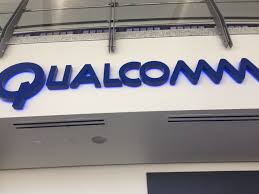Qualcomm has to pay a $2 billion fee to NXP for terminating proposed deal
Since announcing the proposed $44 billion acquisition of Dutch semiconductor firm NXP in October, 2016, Qualcomm has worked to gain worldwide regulatory approval for the deal, and extended the tender period numerous times. Now the San Diego, Calif.-based seminconductor giant has called off the deal and has to pay NXP a $2 billion termination fee.
NXP has a strong foothold in the growing automotive chip business, which Qualcomm regarded as an opportunity to expand its reach into new vertical markets. Even though the deal is dead, Qualcomm CEO Steve Mollenkopf says the company’s growth strategy will stay the same.
“Our core strategy of driving Qualcomm technologies into higher growth industries remains unchanged,” Mollenkopf said in a statement released July 26. “We will continue to focus on our strong momentum in these growth industries with projected revenues of approximately $5 billion for fiscal year 2018, up greater than 70% from fiscal year 2016. We believe our technology leadership and disciplined execution will drive significant value creation for our stockholders.”
It has been an interesting year for Qualcomm. In addition to the NXP deal, the company had to fight off an attempted hostile takeover from Broadcom that was backed by some activist shareholders. Ultimately that deal was killed through the direct intervention of President Trump who used national security as the basis for blocking Broadcom’s $117 billion bid, which would’ve been the biggest ever in the semiconductor segment.
Given the global businesses operated by Qualcomm and NXP, regulatory approval was needed from regulators around the world, including the U.S., European Union and China, a key market for both firms. At the time the deal was terminated, all of the regulatory approvals were in place with the exception of a blessing from China’s MofCom.
Industry watchers and analysts see a clear relationship between MofCom’s lack of approval and the ongoing trade tensions between the U.S. and China, which has ushered in a variety of economic impacts ranging from a 10-year low in soybean futures and motorcycle manufacturer Harley Davidson moving some plants overseas to the Department of Commerce effectively shutting down (then restarting) the operations of Chinese network infrastructure vendor ZTE and a renewed scrutiny of Huawei’s relationships with many domestic rural carriers.
With the NXP deal off the table, “We intend to pursue a stock repurchase program of up to $30 billion to deliver significant value to our stockholders,” Mollenkopf said in a statement released with the company’s Q3 2018 financials.
For the quarter, Qualcomm reported $5.6 billion in revenues, up 4% from the same quarter last year; operating income of $900 million, up 20%; net income of $1.2 billion, up 41% year-over-year; and $2.1 billion in operating cash flow.

